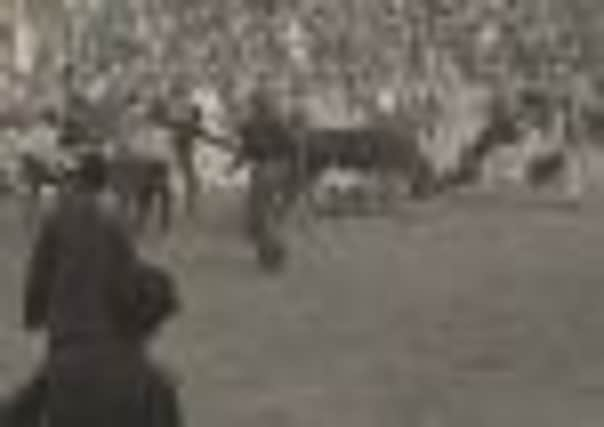Roger Cox: Men of letters or men of action? Britain’s literary elite tend to revere one and revile the other


Fairly unambiguous that, isn’t it? Not much room for doubt. Still, it wasn’t enough to prevent the release of his Selected Letters in 1981, and it hasn’t prevented the advent of the Hemingway Letters Project either – a herculean effort involving a vast team of academics which will eventually result in the publication of the author’s 6,000-odd surviving missives, about 85 per cent of them never seen before.
It’s hard not to feel some sympathy for Hemingway, no doubt spinning in his grave as you read this, but as his son Patrick put it shortly before the release of the Selected Letters, “If you don’t want [your letters] published, burn them... it’s like a giant heap of cellulose, you know. It’s going to burn.”
Advertisement
Hide AdAdvertisement
Hide AdThe Letters of Ernest Hemingway Volume One, the first instalment of what is shaping up to be an epic 16-volume series, was released last month by Cambridge University Press. It covers the author’s formative years from 1907-1922, and by any measure it’s a Very Big Deal. Why? Because Hemingway didn’t just win the Nobel Prize for Literature and revolutionise the way writers write with his flinty, stripped-back prose, he also led one of the most dramatic and intriguing private lives of any of our literary icons, playing explosive practical jokes on Picasso, drinking with James Joyce (well, drinking with lots of people actually), hunting big game in Africa, catching big fish off the coast of Florida, working his way through four wives and two world wars and also finding time to survive a couple of near-fatal plane crashes. Who wouldn’t want to find out what was going on behind the scenes in a life like that?
Predictably, the release of the first batch of Hemingway’s letters was greeted with much fanfare in America, with papers from USA Today to The Oregonian devoting serious column inches to the event. In the UK, though, nobody seems all that bovvered. At the time of going to press, several weeks after the publication of the first volume, there hasn’t been a single scrap of coverage in a British newspaper. Not even a picture caption. The publishers say they are “disappointed” at the lack of response, and that’s probably putting it mildly. So what’s going on?
I wonder if this collective Hemingway blindspot might have something to do with the way the literary establishment in this country views men (and women, but usually men) of action. Just look at the list of Booker Prize winners since 1969 – not a sports book among them and not a lot of sporty authors either. No, here in the UK we like our writers to be serious persons of letters, to toil away in small, darkened rooms, surrounded by piles of paper, emerging at intervals to mumble modestly at awards ceremonies before returning to the grindstone. With the notable exception of Martin Amis, we’d rather they didn’t lead showy, superstar lifestyles, thank you very much, and we’d rather they didn’t indulge in lots of physical exercise either, much less write about it.
And so, whenever we think we can get away with it, we ignore people like Hemingway – a crying shame, really, because as a poet of action he is unsurpassed. Granted, I’m not a fisherman or a bullfighter, so I can’t comment on how well he nails the essence of those sports. In his short story “Cross-Country Snow”, however, he captures the sensation of skiing better than anyone I’ve ever read:
“The rush and the sudden swoop as he dropped down a steep undulation in the mountain side plucked Nick’s mind out and left him only the wonderful flying, dropping sensation in his body.”
In a letter to Ezra Pound in 1922, responding to the publication of TS Eliot’s mighty poem The Waste Land, Hemingway indicates his approval and then writes: “If Herr Eliot would strangle his sick wife, bugger the brain specialist and rob the bank he might write an even better poem.”
Perhaps if our literary novelists got out more, we might see more variety in that list of Booker winners.